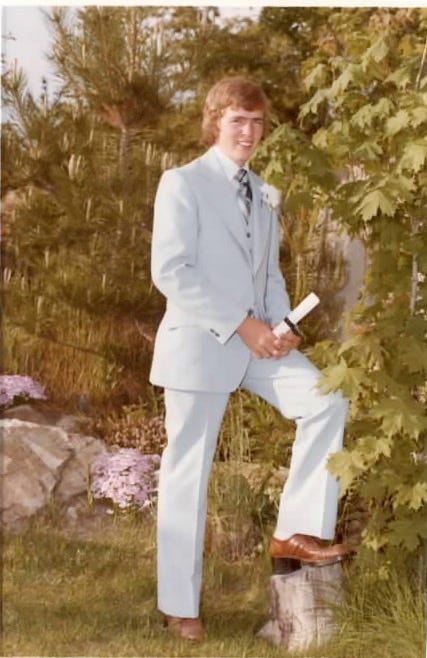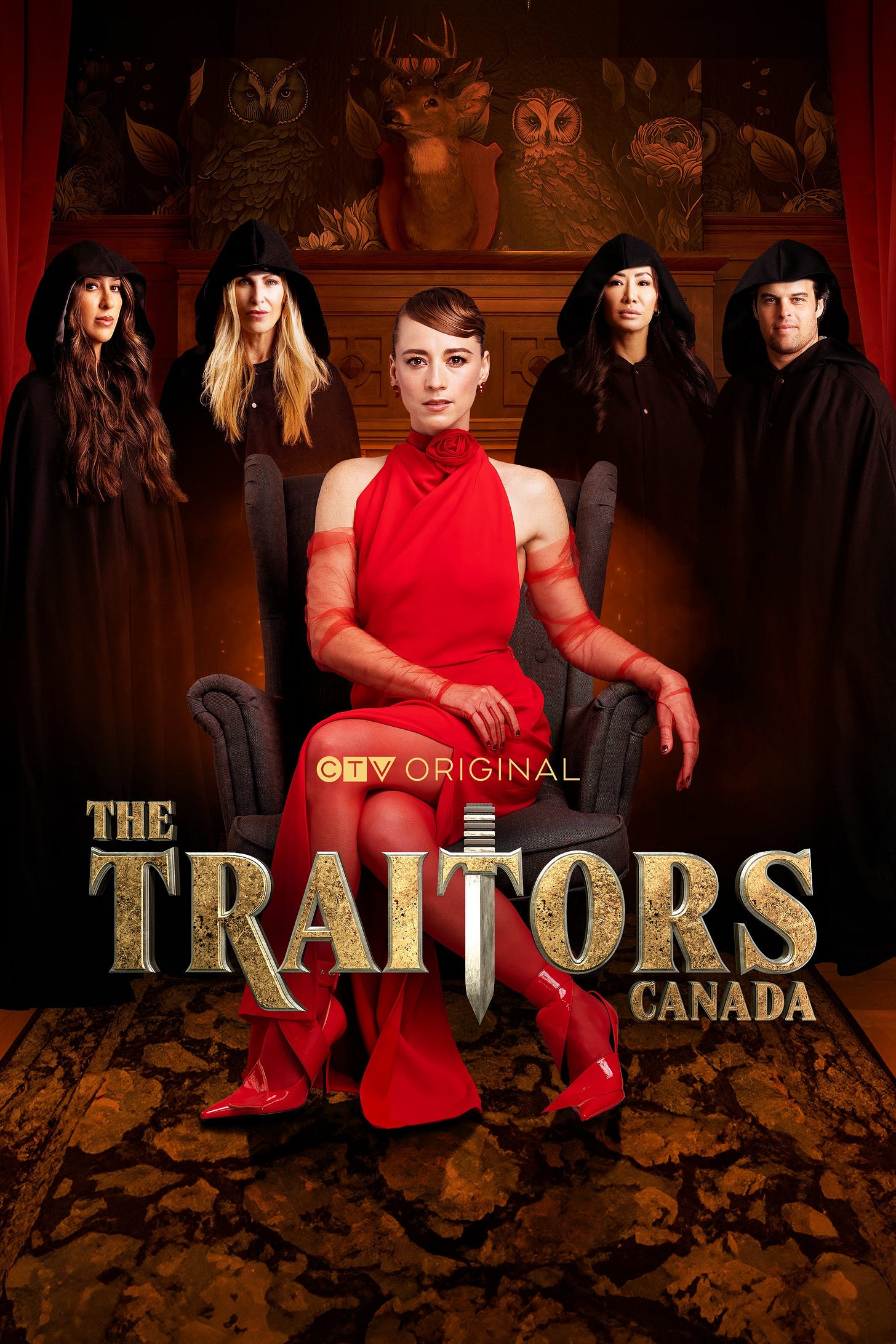A Baby Boomer Broke the World
The beginning of the end of my generation leaves the world at a crossroads
Danes have a saying that they live in a “smørhul”. The word-for-word translation is “butter hole”, the indentation where they add creamy butter to their porridge. Most Danes no longer eat porridge regularly, but the term lives on. It means Danes feel like they live in a place that is safe from the threats, uncertainties and vulnerabilities of the outside world.
I grew up in a “butter hole” in Canada. Our middle-class life in the late 60’s and early ‘70s felt safe and comfortable. We didn’t have to worry about getting drafted into the military and we were too young to experience the oil crisis.
When I was in my mid-teens a group of friends and I discussed what we wanted to do with our lives. Our parents wanted us to become dentists, doctors, or lawyers. That was perceived to be the best path to continue and perhaps even improve upon the comfortable lives we were living.
One of my friends wanted to become a corporate lawyer. That was the best kind of lawyer, he said. I told my folks I wanted to become a corporate lawyer, too. I had no idea what it was.
When we talked about wealth, none of us wanted to become rich. We wanted to live comfortably. Excess wealth was not perceived to be better than comfortable living.
We were environmentalists, feminists, and wanted a free and fair society for all. That means we wanted cars that got good gas mileage, we wanted women to have career opportunities, and we wanted everyone to have a fair shot at a comfortable life.
Yes, we were naïve. We were sixteen.
One of the great privileges of my middle-class upbringing was the high school graduation present my parents gave me – a one-way ticket to Norway. It cost over $800 dollars. That’s about CA$ 4500 in today’s money.
No wonder they only wanted me going one way!
Leaving the safety of my “butter hole” opened up a whole new world. I spent the first year abroad trying to fathom that the people I met thought they lived at the centre of the universe. I was convinced that was where I was from.
In 1978, Norway was a third-world country. Most people didn’t have phones in their homes let alone their pockets. Cars were heavily taxed as luxury items. Normal people took the bus and stood in the rain waiting their turn at the neighbourhood phone booth.
When I started university in 1979, the public spaces were full of common interest groups one could join. There were the Marxists, the Leninists, the Maoists, the Khmer Rouge supporters and, in one corner, the Anarchists were calling for an armed revolution. The only anarchist I knew was the self-declared pacifist son of a bank executive. I had a hard time understanding how a rich kid pacifist was going to partake in an armed revolution.
But, hey, when you’re 19, everything seems possible.
University was free, except for food, housing, and books. I ate macaroni, rented cheap rooms, and borrowed books from the library. I had no big goals; I just signed up for classes that piqued my interest: Psychology, Biology, Computer Science, Social Studies. I failed a social economics class because an essay I wrote defended capitalism. It turned out the professor had played a role in helping Yugoslavia build its post-war socialist economy in the 1950s.
In 1986, I dropped out of university with a not-quite-finished master’s degree in Psychology. A year later, I quit my job as a ticket taker in a movie theatre, took a pay cut, and started my hotel career as a security guard. At my interview, I was told I was too old, too educated, and had too many opinions. Two weeks later, I was hired because the only other applicant had turned the job down.
The hotel company was a subsidiary of a government-owned airline. They were known as the “businessman’s airline”.
In the 1990’s, we entered a master franchise agreement with a US chain with growth as a strategy to turn our loss-making company into a profitable one. Eastern Europe was opening up, the Soviet Union had collapsed, and we jumped at the expansion opportunities in the newly democratized countries.
It was an exciting time. I travelled to new countries, met new people, and experienced new cultures almost every week.
The world was becoming wealthier, travel was becoming more affordable for more people, and companies like the one I worked for were bringing our version of the “butter hole” to the world. We raised Scandinavian flags in front of our properties and decorated Christmas trees in the lobbies of hotels in countries that didn’t celebrate the holiday.
As we moved into new countries and cultures, employees were forced to follow our corporate scripts and standards. We called it quality control. In reality, we didn’t want employees to have to think for themselves.
Our growth ambitions knew no bounds. When we proclaimed we were going to open a new hotel in every African capital city, I wrote a memo to our senior leadership asking “What if we’re the bad guys?”. Did we care about the people in the countries we wanted to open hotels in, or did we care about the larger profit margins those countries offered us? The CEO thanked me for asking the questions and admitted it was the economic opportunity that was driving the plan.
We increasingly became an “asset light” company. Property owners paid a franchise fee and kept management control. Steady income for us without having to manage the people who cared for the guests in our hotels.
Personnel departments became human resources departments and then human capital departments. In some companies, “human resources” were lumped together with the procurement of commodities.
Employees were a cost line on the balance sheet, and costs were to be kept low.
The lower the cost for employees, the bigger the bonus for people at the top.
Where possible, jobs were outsourced to the lowest bidder or to countries with generally lower salaries.
The so-called trickle-down economy was like a form of remote slavery. We turned a blind eye to how people were treated as long as we got what we wanted at a lower price than we paid when we managed employees ourselves.
Outside of our company, societal behaviour was following similar patterns.
Some countries sent their garbage to low-income countries and called it recycling.1
Gated communities were built so those who could afford it didn’t need to see, let alone interact with, those less fortunate than themselves.
“I paid my taxes for forty years. I should be able to live in a neighbourhood where I don’t have to see a homeless person.” - NN
In times past, the number of people you provided meaningful employment and a comfortable livelihood to was a KPI for company success.
Today success is simply the value of the share price and firing employees often makes that price rise.
We invented slick-sounding but highly inaccurate names for new technologies and entertainment forms.
Social media is so anti-social that people are lonelier and struggle more with mental health challenges. 2
Reality shows have scriptwriters with roles played by actors and wannabe actors. 3
The End of North America
(The title above links to a Substack post by
)Since I began writing this, the world as we knew it dramatically changed.
In the country once looked upon as a democracy and beacon of freedom and the rule of law, an unelected, ultrawealthy person has been given access to government databases. Government employees have been given an email ultimatum to decide whether they want to remain on the job with no guarantee that their job will exist in the coming months. All programmes promoting diversity, equity, and inclusion have been scrapped. Foreign aid has been cut off. Senior officials have been fired without due process.
The president of Canada’s neighbour and, until last week, closest friend and ally, has imposed economic tariffs with a stated goal of using economic force to end our sovereignty.
“President John F Kennedy said many years ago, geography has made us neighbours. History has made us friends. Economics has made us partners, and necessity has made us allies.” - extract from Justin Trudeau’s response to tariffs
The quote is no longer valid, so I updated it.
Geography made us neighbours, history made us friends, economics made us partners, but with the stroke of a pen, necessity is forcing us to reevaluate our friendship and our partnerships.
The President is a baby boomer, just like me. He’s an early boomer, I’m a later one.
We’re the generation that decided personal wealth was the only valid measure of success. Everything else is secondary.
“I want to become wealthy so I can be a philanthropist.” - panelist to a group of business school students
Ethics, integrity, honesty, compassion, tolerance, fairness, and freedom are off the table unless we are wealthy. Then we can pretend to be kind and care.
The tariffs were justified with claims that illegal drugs and immigrants were pouring over the border and killing our neighbours.
It was never about fentanyl.
It was never about immigration.
It was always about wiping a neighbour, NATO ally and sovereign nation off the map.
We shouldn’t be surprised that in a time where people line up to chase fame on a game show called The Traitors, a former game show host is elected to dictator president.
Can loyalty still exist when employers treat employees as a cost that must be kept as low as possible?
Can loyalty exist in countries where people with unfathomable wealth can finance campaigns to effectively buy elections and government influence?
Asking for a neighbour.
To my American friends in Red states and Blue, I have this to say about Canada’s reaction to tariffs:
We’re not blaming you, The People. We’re blaming the people who have taken power from you and who now want to take it from us.
Even though we dearly wish that many of you would have cast your votes differently, we must deal with the reality we face. That includes the rising tide of intolerance and extremism we see in other countries.
This is a global challenge facilitated by a generation that lost sight of the values that created the opportunity-rich societies in which many of us grew up.
Let’s all communicate, collaborate, and contribute to ending the threat against our democracies.
Stay strong!
https://theconcordian.com/2022/03/reality-tv-the-illusion-of-real/
All articles in the Always Care Community are free.
To support my work, please click here to donate!
I’m Paul. I was born, raised, and currently live in Canada. After high school, I embarked on a gap year in Europe. It lasted four decades. I went to university in Norway and started my hotel career in the basement of a five-star hotel in Oslo. The manager who hired me told me I was too old, too educated, and had too many opinions to be a security guard. He also told me that the only other person who applied for the job didn’t want it.
Thirty years later, I left that same company. It had grown from a small regional hotel chain in Scandinavia to become a large, global, multi-brand company. I moved from Norway to Denmark to Belgium. The company awarded me their highest individual honour for leadership, and security professional peers selected me as the world’s most influential corporate security executive.
I’m a hospitality professional. I’m a security professional. If you ask, I will tell you that security was my job, and hospitality was my business.
Today, I’m an educator and a consultant passionate about hotels, hospitality, and keeping people safe during their travels.
In addition to the Always Care Community, I also write for Risk Resiliency’s Keep Travel Safe. If safe, secure hospitality, hotels, and travel are important to you, please follow us there!
Written with the clarity of hindsight, the accuracy of a faded memory, and countless creative liberties, this is a newsletter of how life has made me an emigrant, an immigrant, and gifted me experiences I never dreamed possible.
Thanks for reading. Your support is my motivation and I’m genuinely grateful that you’re here. Please share, subscribe, and connect with me.







Nice article Paul. I think it is funny how you failed a class promoting capitalism, but most of your position when working at the hotel business were against it -or at least not in favor of profit at any cost.
Um, go right ahead and blame every single idiot who voted for this monstrosity.